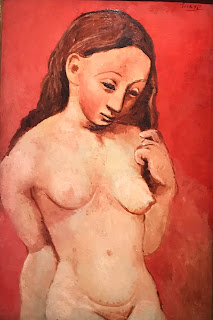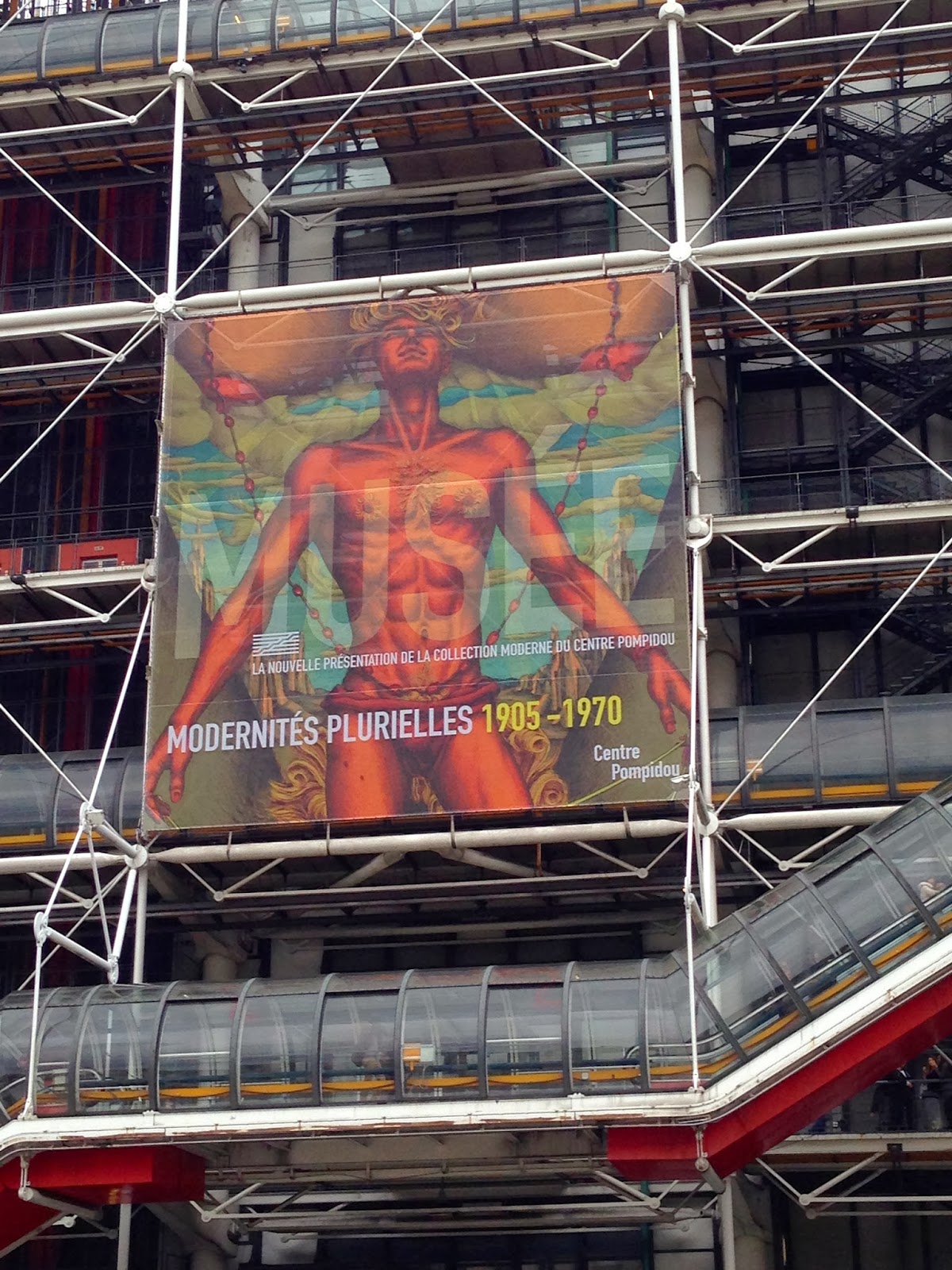In French the description of the exhibition I was off to see was:-
« Le Monde à l’Envers » -
When I saw the English title, I was enchanted : “The Topsy-Turvy World” devoted to contemporary carnivalesque practices. Somehow this had more flavor in it for me than in French.
I guess that it is not so long ago the carnival was reduced to a childish party or something folkloric. In Europe, the carnival continues to do well, in fact very well indeed. I can’t say that my experience of the Venice carnival was too good. I used to teach at the Padoua university during that period and go to Venice for a few days at the end of the week. You couldn’t move around Saint Marco - on the other hand - all the museums were empty and I had those to myself.
Just for the sake of enjoyment, I wanted to see what the MuCEM had to show. This time around, I was a little more impressed with the building on the outside. It’s a shame that the light is not so good on the inside.
The exhibition I knew would be contemporary - or modern. All the better.
So, what it the carnival?
I’m quoting the museum here….
Today very different events are grouped under this name :
• Urban parades, linked or not to the liturgical calendar, ancient or recently invented.
• Ritual masquerades of winter, sometimes starting with All Saints’ Day, characterise the 12-day period, Epiphany or “fat days” before lent. Revisited, these masked rites are now experiencing a widespread resurgence.
• Tropical carnivals enjoy worldwide success. They fascinate the Europeans who go there and are practiced in Europe as celebrations of identity by immigrants originating from the Caribbean or South America.
Masked rites of the southern shore of the Mediterranean:
(the text goes on but is long - very long-)
What amuses me so much in carnival - there don’t seem to be too many nice people around. It’s overeating, sexual license and scatology, inversions of all kinds, the use of masks to reveal misconducts
and to critique local or international politics. I loved this last bit as it reminded me very much of « Into the Woods » (John Adams) and his giants.
Carnival exists of cause in Brazil but today as a culture it is common to the societies of the Euro-Mediterranean area.
Don’t you think that those masks and costumes are a mirror interpretation? Something invented from the Greek or Roman festivals? The church? Are they mirrors in which we would like to recognize ourselves - even as those « nasty people » ? Hiding our faces below costumes or masks can reveal something quite different in our characters. I learnt that in the Cologne Carnival « centuries ago » - I was scared stiff in my mask until suddenly I was bubbling along in broken German and not afraid at all to speak the language. « Hidden » behind my mistakes…..
I haven't added titles for the "carnival" - listening to the children - and there were many of them - most of the time their descriptions were much more colourful than what we were told.....


















































Commentaires